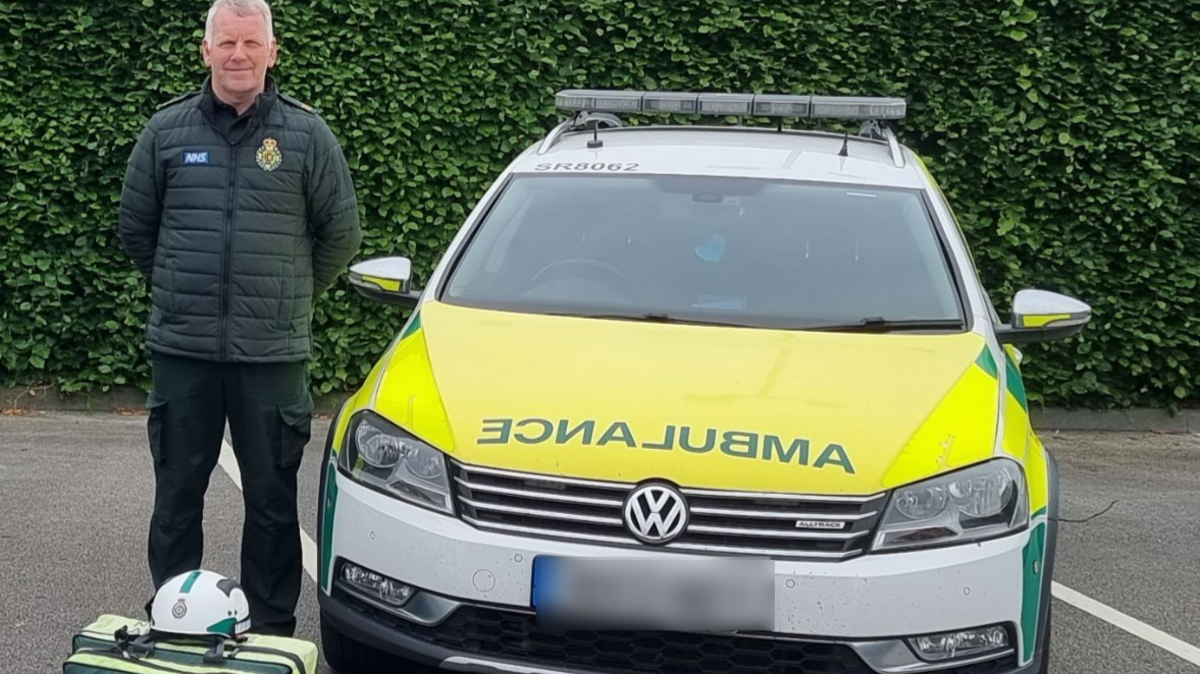Volunteer medic stopped from blue light response

Gavin Palin said he had been with NWAS for more than 20 years
- Published
An ambulance service has stopped an experienced volunteer medic from driving to emergencies on blue lights despite him responding for 20 years.
Gavin Palin has been with the ambulance service in Nantwich for 23 years and said he regularly answered life-threatening calls on blue lights in the area.
But North West Ambulance Service (NWAS) has now stopped him saying new legislation dictated he should have undertaken ambulance trust training.
Mr Palin insists he has completed all the training with NWAS, but the service said it stood by its judgement.
“I have done the refresher courses. I have asked NWAS for my file, which would show this, but they have not supplied it to me," he said.
Since his ban, Mr Palin said he has been stuck in traffic on his way to emergencies - with a patient dying in one incident in which he was held up, despite being the closest vehicle.
“I can’t say that person would not have died if I’d got there earlier, but I can say they would have had a greater chance of survival," he said.
'Passion and commitment'
Nantwich Town Council, which has paid the insurance for two ambulance response cars for more than a decade, wrote to NWAS about Mr Palin. They said the service did not value his skills.
Mr Palin was stopped from responding on blue lights previously in 2008 which prompted a 1,000 people marching through Nantwich in protest and a petition given to Downing Street by former MP Edward Timpson and the council.
NWAS reinstated the permission to him as a honorary member of staff two years later.
Mr Palin said he went on to complete his Emergency Medical Technician (EMT) level 1 course which the service said at the time would increase the range of responses he could attend.
But NWAS now say Mr Palin was an "enhanced community first responder" not an EMT1, despite his badge identifying him as "Gavin Palin, EMT1, paramedic emergency service".
In a statement the service said: “We stand by our judgement of the legal exemptions available; however, over and above these, we have the responsibility to keep staff and the public safe when responding to emergencies.
“Because of the risks connected with high-speed responses, we don’t allow any volunteer community first responders (CFRs) to drive on blue lights while travelling to patients in support of our crews."
Thanking him for his "passion and commitment" for the past 20 years it said there were no grounds to "justify a different position in relation to one individual".
This news was gathered by the Local Democracy Reporting Service which covers councils and other public service organisations.
Follow BBC West Midlands on Facebook, external, X, external and Instagram, external. Send your story ideas to: newsonline.westmidlands@bbc.co.uk, external